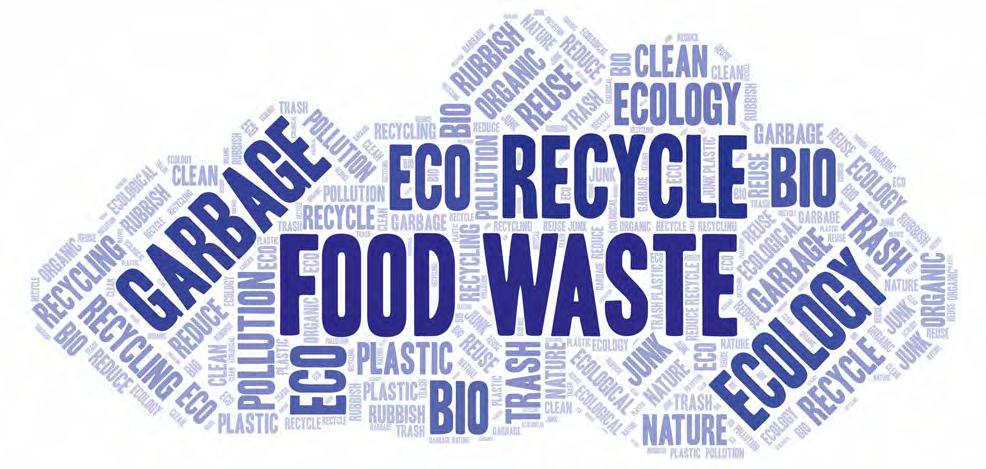
2 minute read
3.4 Attitudes
1 Read and respond.
✓ Analysis ✓ Evaluation
a Choose one of the tips. Explain how it reduces food waste. b Make a list of reasons why people might not change their food waste habits. c How could you fi nd out why some people have bad food waste habits?
2 Look at the food waste word cloud.
Plan meals.
Top tips to avoid food waste
Check dates. Save what you don’t eat.
Store food carefully. Cook what you can eat. Buy what you need. Recycle leftovers. Sample Pages
a Read about why people use word clouds. Why are some words bigger than others?
Word clouds
Data visualisations (like charts, graphs and infographics) can quickly and simply show links between numerical (number) data. If the information collected is mostly text, however, showing these connections can be more diffi cult. Word clouds help researchers understand patterns in their data. Word clouds work in a simple way: the more a word appears in a text, the bigger and bolder it appears in the word cloud.
b Write down the fi ve most important words in the word cloud.
3 Read about the London Environment Institute. Then answer the questions.
London Environment Institute: using science to make a better tomorrow
We are an international not-for-profi t research and policy organisation based in the UK. Our researchers are international experts in environmental science.
Our research is used to advice policy-makers in government. We fi nd and offer solutions for the environmental challenges faced by different countries and the world as a whole. We want to build a better tomorrow.
a
What is the London Environment Institute? Where is it based? What does it do? b Do you think this organisation is a reliable source of information on food waste? Give reasons for your answer. Use the words in bold to help you.
4 The London Environment Institute carried out some research to understand why people waste food. They used the responses to their survey to make a word cloud. Look at the word cloud on the worksheet, then complete the tasks below.
a Match the words with their meaning. supporting factor motivating factor barrier an obstacle that stops you doing something a reason to do something something that helps you to do something b Use the information to complete the gap-fi ll on the worksheet.
Sample Pages
Talking point
Compare the infographic from Lesson 3 with the word cloud. Which information do you fi nd easier to analyse?
















